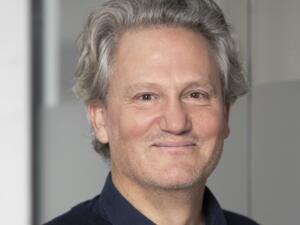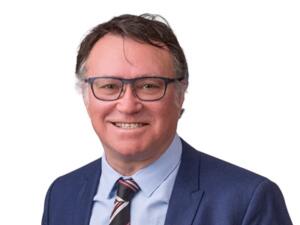Dutch firm Arnold & Siedsma joins private-equity-backed IP group Rouse
Even patent attorney firms are not unaffected by the changes in the European patent market. The mixed Benelux IP law firm Arnold & Siedsma has joined Rouse. Backed by private equity, Rouse is currently on a global acquisition spree.
19 September 2025 by Mathieu Klos
Dutch firms dominated by patent attorneys are seeking connections to international networks. The Benelux firm Arnold & Siedsma has joined Rouse. Arnold & Siedsma is particularly well established in the Netherlands, where it has eight offices.
With main offices in The Hague and Amsterdam, its Dutch team is best known for patent prosecution work in electronics, pharmaceuticals and biotechnology, automotive and transport, as well as mechanics, process and mechanical engineering. It also has a small but renowned litigation team of three lawyers in the Netherlands.
Arnold & Siedsma has three offices in Belgium. In 2022, it merged with Belgian IP boutique LC Patents. The merger expanded Arnold & Siedsma’s expertise in pharmaceuticals, life sciences and biotechnology, while consolidating its presence in Belgium.
Arnold & Siedsma also has an office in Munich, home to the European Patent Office. However, only Steve Duxbury is currently based there. The office mainly serves the Benelux attorneys for EPO proceedings.
A total of 170 employees work in the Benelux offices. Of these, 44 are patent and trademark attorneys and lawyers. Arnold & Siedsma currently has nine equity partners.
100 years of independent practice
The firm is best known for prosecution work for international corporates such as Boeing, Kawasaki, and Samsung Electronics. In litigation, it advises a technologically strong mid-sized client base.
The Benelux law firm now has greater international ambitions, joining a global network after more than 100 years of independence. The merger, completed in August 2025, lends the firm broader geographic coverage. Rouse is an IP network with more than 800 people working across 29 offices in 16 jurisdictions in Asia Pacific, Middle East, Africa, and Europe.
Founded in London in 1990, Rouse has traditionally maintained a strong footprint in Asia and trademarks. In Europe, Rouse previously only had offices in the UK and Sweden. Now, with the acquisition of Arnold & Siedsma, it enters the Benelux countries and European patent law.
A merger of equals
Although initiated by Rouse, the managing partners of both firms emphasise that it is not a takeover but a merger.
Luke Minford, chief executive officer at Rouse, told JUVE Patent, “This is clearly a merger, both firms bring exactly what they need: access to new markets and capabilities, as well as scale and capital to invest. Furthermore, the old partners of Arnold & Siedsma sit across the entire management and governance structure of the Rouse Group and have become critical shareholders alongside the existing Rouse shareholders.”
Minford and Steve Duxbury, managing partner at Arnold & Siedsma, also emphasise that the two entities complement each other well in their areas of expertise.
- Luke Minford
- Steve Duxbury
Duxbury told JUVE Patent, “This merger is particularly interesting because it gives us access to global markets. Rouse is very strong in Asia, especially China, which is very interesting for us and our clients. We give Rouse further access to the continental European market and more patent law expertise.”
Both firms announced that Arnold & Siedsma will maintain its status as an independent brand within the Rouse Group for now, but that “the ultimate objective is to create a fully integrated and seamless organisation”.
However, the Arnold & Siedsma partnership will dissolve. All nine equity partners are now shareholders at Rouse. Two Arnold & Siedsma lawyers who would have been made partner this year will also become shareholders.
The motivation behind the merger
For Arnold & Siedsma, the goal is primarily international expansion to address the future challenges mixed law firms face.
Duxbury says, “The IP business is truly international, and the challenges in IP over the next ten years will be huge in terms of investing in new technologies and AI, but also in terms of new advisory issues for our clients, such as data protection.”
He adds, “The partners at Arnold & Siedsma have therefore been discussing for some time how we should meet these challenges. In Rouse, we have found the ideal partner with a global IP presence.”
“The merger will also make us more attractive to our younger attorneys and future talent. We can offer a very clear career path to becoming a principal, i.e., a shareholder, at Rouse, as well as a more international culture. Both are important to our young attorneys,” says Duxbury.
The managing partner also emphasised that the merger should help Arnold & Siedsma further strengthen its position to achieve the best results for clients at the EPO and UPC.
The firm was recently active in three cases at the UPC: Together with Belgian law firm Altius, Arnold & Siedsma filed an infringement claim for Jozef Nelissen against OrthoApnea. The case concerned a medical device and also included including inspection proceedings. The firm also represents Maars Partitioning Systems at The Hague local division against City Glass and Glazing. Most recently, the firm worked with with Taylor Wessing for TMS Technical & Maritime Supplies against a claim brought by IQIP Holding at The Hague local division.
Rouse on global shopping spree
The takeover of Arnold & Siedsma is the second transaction within two weeks. At the beginning of September, Rouse announced the merger with Australian IP firm Wrays. The firm has four offices in Australia.
In 2024, the group expanded its offering in South Africa and announced a merger with European IP consultancy firm, aera, as part of continued expansion in Europe. That same year, Rouse also acquired the Swedish management consultancy Konsert Strategy & IP.
Private equity house MML announced in 2022 its investment in Rouse. According to press reports, MML acquired 35% of Rouse. A press release from MML stated at the time: “MML partnered with Rouse as a minority investor to support the team to deliver an ambitious growth plan, involving several significant organic initiatives and a focused acquisition strategy. Our investment also crystallised the transition from a traditional partnership model to a corporate model, allowing the business to re-invest for growth and aligning all parties to grow value over the long term.”
Luke Minford confirms a private equity investor holds a minority stake in Rouse group. However, says Minford, MML Capital’s role as a minority shareholder goes far beyond financing M&A. “Over the last ten years, we have observed a fundamental shift in the needs of professional services firms. The business of IP is no longer just about people and expertise, it must be combined with technology, data and processes that enable value to be shared with clients. The amount that you now have to invest and the expertise needed to get the most value from technology, data and processes, especially now with AI, means that classical partnerships are not always fit for purpose. Rouse realised that, changed the company’s structure and brought in MML as a professional investor to help us in that regard.”
Minford does not rule out further investments in the European market.
Dutch market attractive for private equity
Earlier this year, a similar merger took place in the Netherlands, in which private equity also played a role. In April 2025, Dutch patent attorney firm NLO and French patent attorney firm Ipsilon announced their merger, with Dutch private equity house Waterland investing in the combined firm’s future.
The merger’s reach extends well beyond France and the Netherlands. In 2023, as part of its growth strategy, Ipsilon acquired Belgian firm IP Hills with three offices in Belgium. Ipsilon also has offices in twelve French cities, two in Germany and one in Luxembourg. NLO brings two Belgian offices, four Dutch offices and one Munich office.
But unlike Rouse and Arnold & Siedsma the Ipsilon NLO merger is not a full merger. In April, NLO emphasised to JUVE Patent that Ipsilon and NLO retain some autonomy. Although Ipsilon acquired 100% of NLO’s shares with Waterland’s backing, NLO will continue operating in its home market under its established brand and structures. Furthermore, the merger is not expected to significantly alter Ipsilon’s market presence.
Similar to Rouse, both NLO and Ipsilon have also moved from a traditional partner-led model to a corporate partnership structure.
Private equity investors have previously invested in Scandinavian IP firms and are increasingly backing European firms in other legal fields, such as German tax consultancies. However, private equity investment in IP firms remains a nascent trend.
Observers emphasise that the regulatory framework in the Netherlands is more favourable for such private equity investments than in other countries such as Germany. The culture of the seafaring and trading nation also ensures that Dutch IP firms are more open to such investments.


